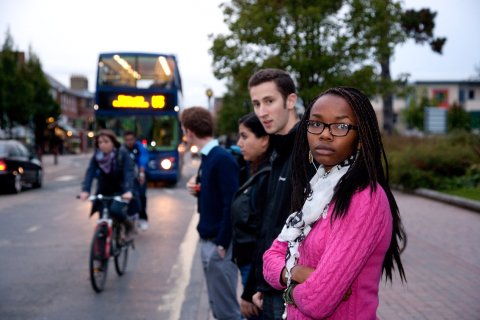
21 January 2016
Ian Taylor, Director of Transport for Quality of Life explains their new research on the failures of bus privatisation and what needs to change.
Who controls your local bus services? When I ask them this question, most people tell me they think their bus services are under the control of their local transport authority or council. If they live in London, where Transport for London has exceptional powers, they are right, but elsewhere in Britain the powers to design local bus networks were stripped from local authorities by the Thatcher Government in 1985, alongside widescale privatisation of the bus industry. Since then the private bus companies have been able to run bus services wherever and whenever they like, without regard to whether the resulting mish-mash of routes results in the most coherent and useful network for bus users.
Under the prevailing ideology of the time, it was presumed that bus companies working to maximise their profits would automatically maximise benefits for bus travellers. The Thatcher Government confidently predicted that, “Without the dead hand of restrictive regulation fares could be reduced now on many bus routes and the operator would still make a profit. New and better services would be provided. More people would travel.”
But deregulation and privatisation had the opposite effect: fares rose, services worsened, and bus use fell. In the big cities outside London, the earlier small rise in bus use was replaced by a fall of 13% in just one year, followed by a steady downward trend. Bus trips halved from about 2 billion per year before deregulation to about 1 billion per year now.
Local authorities have done their best since bus deregulation to pick up the pieces, but they are only allowed to reactively fill the gaps after the commercial bus companies have cherry-picked the best bits of the best routes. To fill the gaps, they tender contracts to those same bus companies to run services to less lucrative destinations, or at quieter times such as evenings and weekends. Rather than being able to use the revenue from the profitable times of day and sections of route to cross-subsidise other services, the profit is lost from the system. Our research for a new report, ‘Building a World-class Bus System for Britain’, has found that £277 million leaves the bus system every year as shareholder dividends. Meanwhile, local authorities pay to try to plug the holes, providing further profit to bus company shareholders with each tendered contract. At the end of local authorities’ reactive attempts to amend deficiencies in the bus system the resulting networks still fall far short of the networks they would design from scratch if it were setting out to maximise public benefit rather than corporate profit.
On top of this, even the ‘commercial services’ that the privatised bus companies decide to run are subsidised. They receive payments that offset their fuel duty, and payments to recompense them for carrying older people free of charge. £2.4 billion was paid to bus companies from the public purse in 2013/14, of which less than half, the £1 billion portion for gap-filling tendered services, actually specified the services that the bus companies should run in order to receive it.
All this is happening when pressure on local authorities’ budgets has led to extreme pressure on their tendered services. In some areas they no longer exist at all and in other areas large gaps in the bus network are left unfilled. When this happens, it is those who live in the places that are already least accessible who suffer the worst consequences, along with women, older people and poorer people, all of whom use buses proportionately more than other portions of the population. It is not widely appreciated that more people travel by bus every day than by any other form of public transport, more than double the number who travel by train. Buses are vital social links, essential to local economies, and are key to achieving a sustainable transport future in which our towns and cities are not throttled by yet more cars. However, the present deregulated bus laws disable public authorities from creating effective, financially efficient networks.
London has retained a regulated system that is far superior in its results for the city and for bus users. Transport for London has powers to design the whole bus network, which it runs under a franchising system. It decides what bus routes will run and lets contracts for these. It takes the fare revenue, so where a route makes a surplus above the price of the contracted services it can use the surplus to cross-subsidise services at quieter times or to destinations that are not quite able to support a fully commercial service. Under this system, carrying older people and young people for free is just part of the franchise contract and can be done economically. It is the same bus companies that work for Transport for London that run the buses according to their own wishes in other parts of Britain. The big difference is that they make lower profit margins under London’s system.
The research for our report showed that, over a ten year period, bus companies in the big cities made average profits of over 8% of turnover; in non-metropolitan areas the figure was over 6%; whereas in London, where services are regulated, it was less than 4%. This means that bus companies in the metropolitan areas are raking off twice the share that they do in London.
We calculate that if the current deregulated system were replaced by franchising throughout Britain, it would generate net financial gains in the order of £340 million per year. These financial gains arise in three ways. Firstly, bus franchising would capture the ‘excess’ profit being made by bus operators outside London above the level of profit made under the regulated system in London. Secondly, with their new powers, local transport authorities could design coherent, unified bus networks that maximise the benefit to travellers (rather than networks designed to maximise bus companies’ profits) and could provide simple easy-to-use London-style ticketing valid on all buses and all other modes of transport, improvements that would lead to more people using buses and bring in more fare revenue. Thirdly, there would be efficiencies in providing the services that are currently tendered, by designing these as part of the whole network rather than an as an afterthought. The immediately available financial gains, from capturing excess profit and from efficiently designing the presently tendered services into the bus network, would be more than enough to restore all the recent cuts to fuel duty reimbursement to bus operators and to local authority support for buses. Over time, as bus patronage rose in response to better bus networks and ticketing, resulting rises in fare revenue would provide additional funding for new services over and above those that have been cut since 2010.
To their credit, George Osborne and the Treasury seem to have grasped that there is wastage in the bus sector and that a shift to the London franchising system would be a more efficient use of public monies. To this end, the recent devolution deals with big cities and Cornwall have included a promise of bus franchising powers. The Department for Transport is set to provide the legislation for franchising powers in a Buses Bill due to be published in February. The big question is whether local authorities will actually put these franchising powers to use, or whether multi-national bus operators with far more financial and legal muscle than local councils will make the process too challenging. The danger is that only a few big transport authorities with a strong vision for how public transport could benefit their cities will achieve franchising, whilst smaller weaker councils elsewhere will be too frightened to obtain the bus franchising powers their residents deserve.
Even if bus franchising does go ahead widely, it will not be as good as the best bus systems in the world. The research for our report also calculated what Britain could gain from operating buses within the public sector, so that there is no profit leakage at all. This is the norm in other European countries. We calculated that changing to municipal bus operation would generate over £506 million per year. This is substantially greater than recent cuts to bus funding, so would allow both for restoration of services that have been cut, and investment in new services.
Twelve municipal bus companies have survived in Britain, despite thirty years of deregulation, having fought off the commercial competition. Some of these succeed in providing a fuller network than commercial operators as a result of not having to pay dividends to shareholders, and they win a disproportionate share of awards to bus companies for the quality of their services. However, the continued threat of incursion from unregulated commercial companies means municipal companies cannot invest in their networks for maximum public benefit. The history in many areas is that a competitor will attempt a cut-price operation to cherry-pick some of a municipal’s best routes, so that the municipal operator has to waste money fighting off the intruder - money that could otherwise be spent on providing better services to other parts of the municipality.
Other European countries protect their municipal operators against this sort of destructive behaviour. They take a more pragmatic approach than Britain, which seems to have been blinded by a ‘market knows best’ ideology from doing likewise. Local authorities in Britain should be able to explore the potential benefits of municipal bus operation too. If they conclude that in their particular local circumstances it would be beneficial, they should be able to establish a new municipal bus operator with rights to run all the local bus services. Our report shows that there is a strong case to develop a whole new generation of not-for-dividend publicly owned bus companies that run all the services within their areas of operation.
The fight is on for the future of our bus system. The next year will show whether our bus system is going to continue to be a conduit for corporate welfare or will be redesigned as a public service.
Read the full report on the Transport for Quality of Life website.


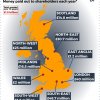
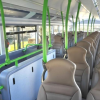

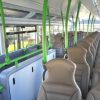
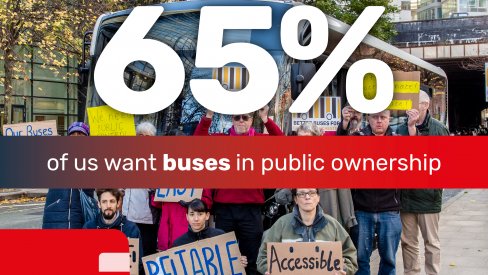
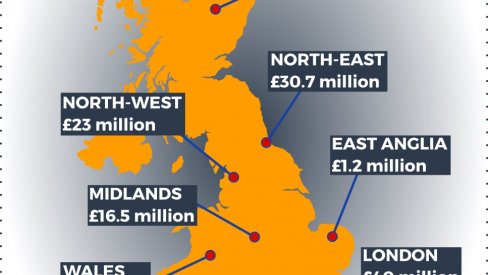
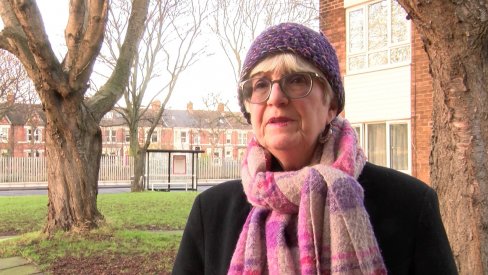
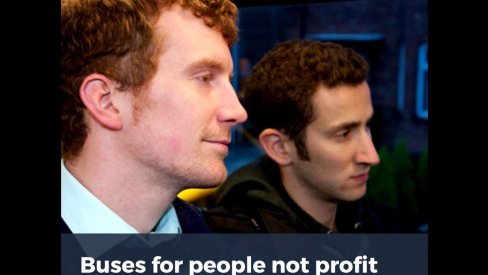
Comments
Caroline Hope replied on Permalink
Buses are definitely needed for circulation, not for profit. A considerable proportion of areas in this City are without shops and facilities which are within a walking distance, these areas are within the least affluent parts of the city so with a higher proportion of people who do not have cars, which we are expected to have if we are to maintain an acceptable lifestyle.
Linda Evans replied on Permalink
I'm all for using public transport. When I travel -- Newcastle, London, Australian cities -- I use lots of public transport. But in Sheffield it's such a miserable process that I am put off. I'm a pensioner. But if I had to pay bus fares, I'd feel cheated and exploited. Before privatisation, Nether Edge into Sheffield Centre was less than 10 pence. Now it's over £1.50. A factor of about 15 over 30 years. Let's have publicly run public transport, subsidised if necessary, because it's for the good of all of us.
Peter Yates replied on Permalink
I have used the buses in Sheffield on my travels and concur that it is a miserable experience.
It's interesting, however, that there is some evidence - with (Transport for) London and Manchester - that bus services operate more effectively under 'public control'.
Conversely, there is also evidence that train services have generally proved more efficient post-privatisation.
Michael replied on Permalink
I live in the West Midlands. They keep changing services and times by me I just get fed up. Its such an effort to local centres for shopping especially getting the shopping back. It takes two buses two and from centres only 1.6 miles away, they care more about the profit than the actual full network and how services connect and the bizarre thing is most buses to other destinations is in these other local services. Only the main High Streets provide good service from centre to centre away from this its a nightmare, I end up not bothering which doesn't benefit local economies economically. I live in a poor area and around 40-50% don't drive but the services get more confusing. Most people now own cars more or pay for taxis. The keep changing but most roads near my area are always going to be unprofitable so its a pointless exercise trying to run commerical services,both services by my road are partly subsidised anyway and they are more profitable and have more users by the look of it and its probably due to the fact they go someone quite direct and link places up along the way, if only every service was like that!
Add new comment